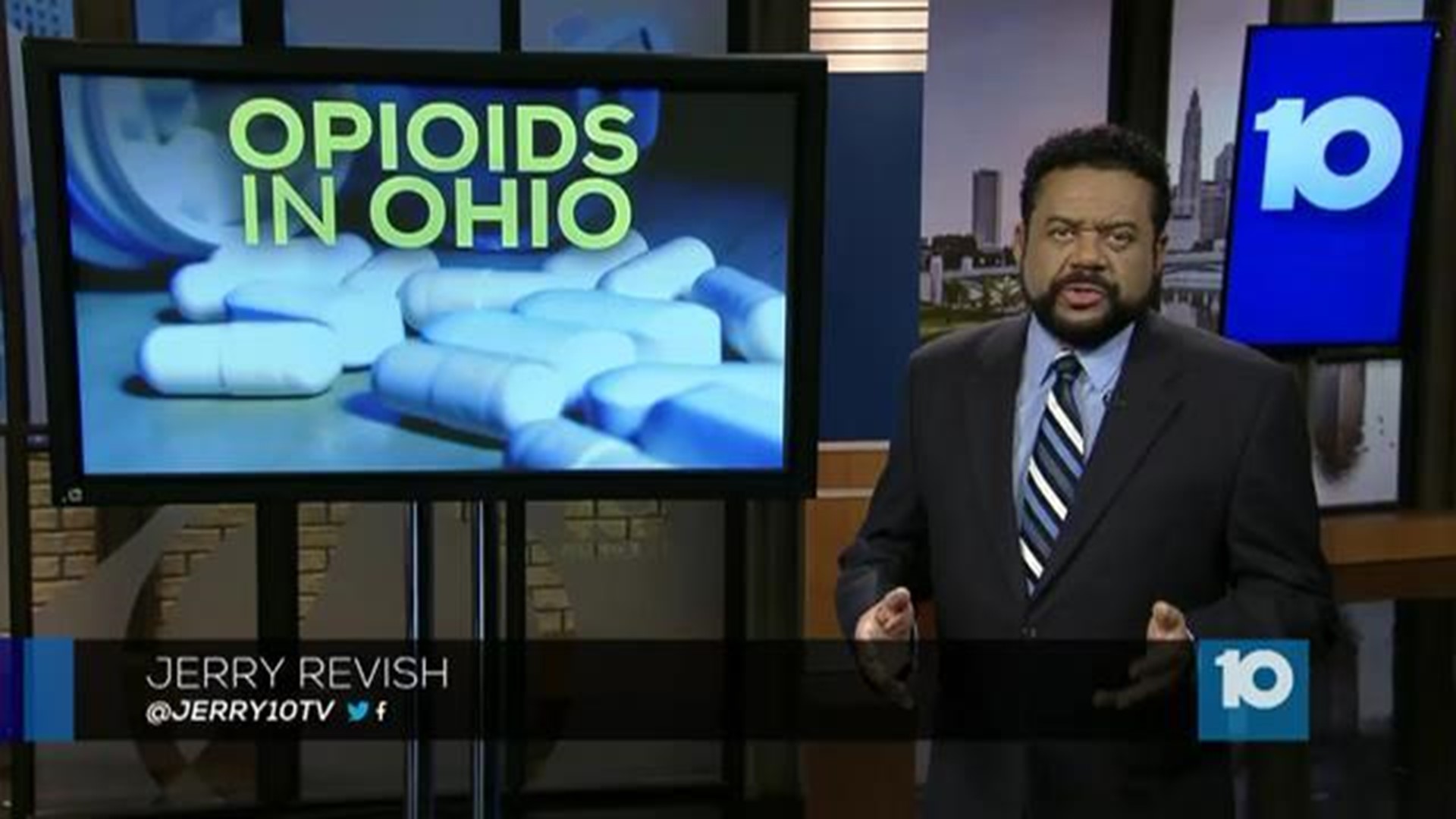Ohio Attorney General Mike DeWine calls the opioid epidemic "the crisis that's ripping Ohio apart."
Monday he unveiled a plan to try and help put it back together.
DeWine introduced a new 12 point plan called "Recovery Ohio" that includes increased treatment, new tools for law enforcement, and expanding prevention.
Only 7 minutes in to Ohio Attorney General Mike DeWine's announcement and some of the anger over what's happening in the state, came out.
"Yeah I'm mad. and I think every Ohioan should be mad," DeWine said.
DeWine says Ohio is being ripped apart by the opioid epidemic and the problem is evolving.
He believes his 12 point plan will help.
"New developments in this epidemic require new strategies," DeWine said.
Point 1 would require Ohio lawmakers to pass legislation to give Governor John Kasich the power to declare a public health emergency statewide or in specific areas. DeWine says it would also allow the governor to speed up the process for state licenses or approvals in the medical and social work fields.
Under point 1, Governor Kasich could loosen occupational rules to allow out of state specialists to work in Ohio.
"These are just ideas. The governor would be able to implement this with new power granted by the state legislature," DeWine said.
Governor Kasich's press secretary responded to the idea, saying:
“Thanks to Governor Kasich’s leadership, Ohio is now spending more than $1 billion in the fight against drug abuse. We welcome any and all opportunities to collaborate with others to support those on the front lines in our communities.”
DeWine says point 2 is needed to better fight the Mexican drug cartel.
He suggests creating a state of the art data system for all Ohio law enforcement agencies to share real time data, analytics, and crime prediction.
"To go against the drug cartels, who are highly organized, who are highly efficient, who run a horrible horrible business, to go against them we need better data and we need better data to share with law enforcement agencies across the state of Ohio," DeWine said.
The topic of data and analytics came up during the Democratic Gubernatorial debate Sunday night, moderated by 10TV political anchor Scott Light.
Each candidate was asked how Ohio should use data and analytics to go after the opioid epidemic.
"This does need to be a part of our prevention, part of our treatment and part of our enforcement," candidate Connie Pillich said.
"We have to go at this with every resource we can muster because our future depends on it," candidate Betty Sutton said.
Senator Joe Schiavoni said he has a bill pending in the Ohio General Assembly that would invest in the opioid problem.
"There's also pieces in that legislation that would create a statewide database so that in real time every single person seeking treatment in the state can go on the website, their families can see where the open beds are in their communities," Schiavoni said.
Dayton Mayor Nan Whaley said using apps might help the younger generation, because the crisis affects them too.
"The Ohio mayor's alliance, where I'm a founding member of, actually sent a letter to Governor Kasich recommending that we get faster data back around the opioid epidemic because right now the state is only using 2015 numbers," Whaley said.
DeWine says the 12 point plan is building on some things that are already being done, but because the problem is evolving, more has to be done.
"This is evolved, we are in a new position," DeWine said.
DeWine said these initiatives should be paid for by the people who are responsible for the crisis, which he says is the drug companies.
He says he's given those companies 30 days to come forward and discuss settlement options.

